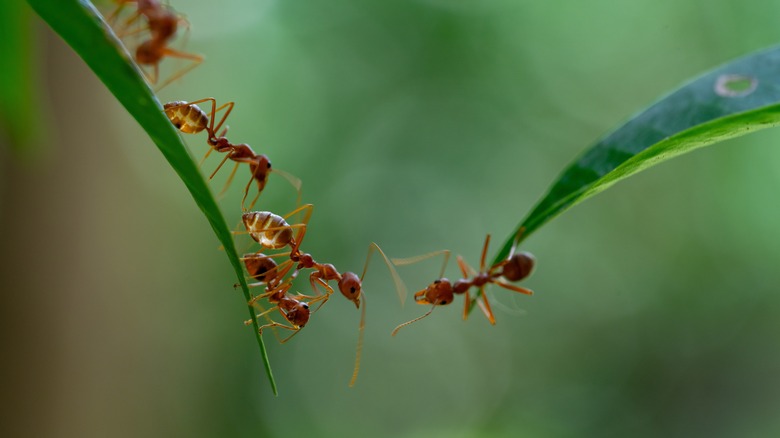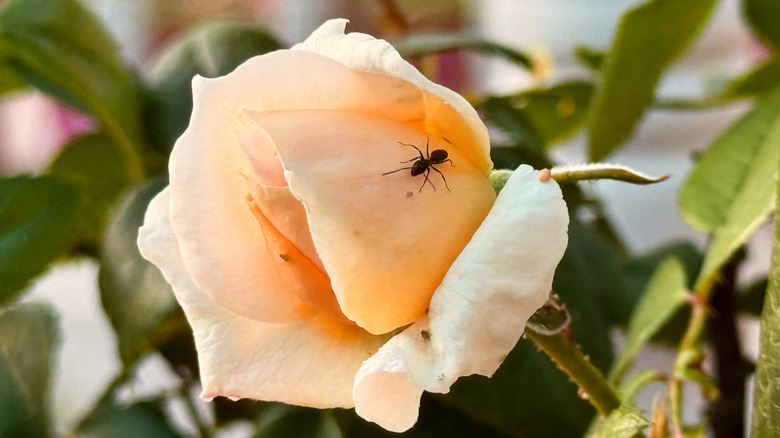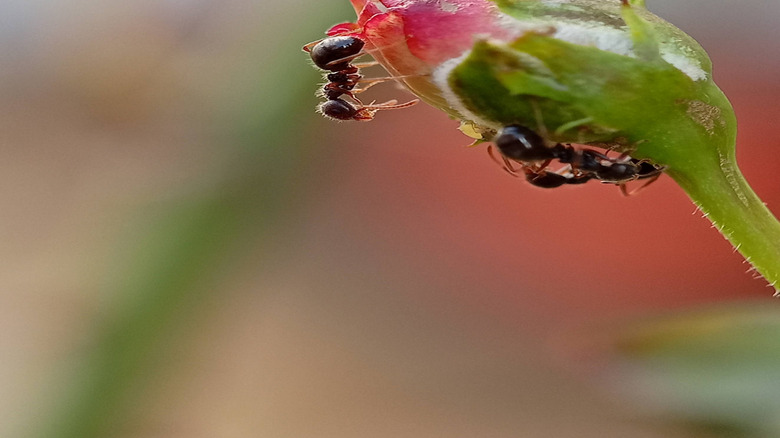If Your Garden Is Filled With Ants, A Popular Flower May Be The Culprit
"The optimist sees the rose and not its thorns," poet Kahlil Gibran once wrote. But what if the rose is growing amidst... ants? Yuck! While roses are one of the most popular additions to home landscaping, what gardeners may not know is that the sweet-smelling flower actually attracts ants — even if you plant your roses in full sun, which is one of the best places to plant garden roses. From tea roses and wild roses to climbing varieties, ants are attracted to multiple kinds of rose plants.
Luckily, the ants themselves, while an annoying eyesore, aren't a problem for your roses. However, they can indicate the presence of other pests that can be harmful to your precious plants, like aphids. Aphids secrete a substance that can attract ants, so the latter are often a sign of the former. If you've got ants in your plants, your beautiful roses — and the other pests they attract — are a possible culprit.
Why ants love roses
There are a few reasons why ants love these multicolored blooms, the aforementioned aphids among them. Aphids produce a sweet substance called honeydew, which ants love to feed on. It's not just about food for the ants, though. Rose bushes also provide ideal shelter and nesting conditions, like soft soil for burrowing and easy access to water. It doesn't help, either, that the sweet nectar produced by roses is attractive to ants on its own. Ants are wingless, so in order to access the nectar, they have to crawl all over your precious roses.
It's also possible that the ants are attracted to a variety of different fungi that could be growing on your roses. For example, black spot on roses is a fungal disease that causes small, dark dots on the leaves. Whatever the cause, the sight of an army of bugs on your roses is an eyesore, no doubt.
How to rid your roses of ants
If you've identified that you've got an ant issue, there are several ways to remedy the situation. Natural recipes are one potential route; you can choose between making a sugar water mixture (1 part sugar to 2 parts water) or a borax mixture (a 1:2 ratio of borax to water) and spraying either mixture all over your roses wherever you see the ants, which will drown. Diatomaceous earth also works by drying out the ants' exoskeletons — and it works on aphids, too. You can also try planting plants nearby that are known to repel ants, like mint. Just keep in mind that, to keep your mint plants happy and healthy without them taking over your garden, growing in a container works best.
If you'd rather use an insecticide, choose between a systemic insecticide and a contact insecticide. Contact insecticides only kill ants that they physically touch, while systemic insecticides kill both the pests and their eggs, generally making them a more effective solution long-term. If you notice aphid colonies on any part of your rose bushes, make sure you prune the affected parts thoroughly, as this will help keep ants away, too.


